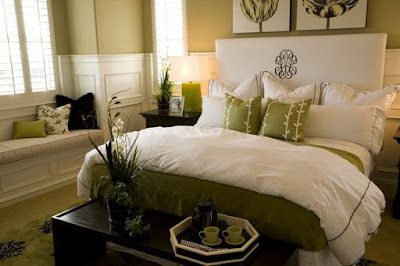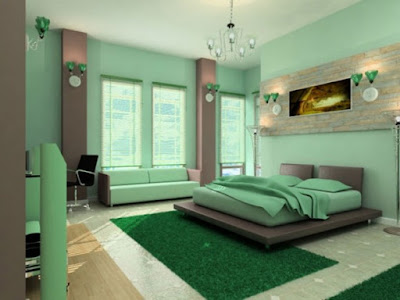Dining Room Decorating Ideas With a Chair Rail
 Chair rail, also called wainscoting, is a piece of horizontal molding placed on walls three feet off the ground. Traditionally made of wood, it served to protect plaster walls from being damaged by chairs and other furnishings. Today, it serves more of a decorative purpose and comes in wood, plastic, resin, plaster, limestone or other materials. Add contrast and character to your dining room by easily installing chair rail.
Chair rail, also called wainscoting, is a piece of horizontal molding placed on walls three feet off the ground. Traditionally made of wood, it served to protect plaster walls from being damaged by chairs and other furnishings. Today, it serves more of a decorative purpose and comes in wood, plastic, resin, plaster, limestone or other materials. Add contrast and character to your dining room by easily installing chair rail.Division of Color
After your chair rail is installed on your dining room walls, use the rail to divide two different colors. Generally, a darker color is below the rail and a lighter color is above, but this is not set in stone. For example, Country Living shows a room with a dark teal color above the rail and a light, pale green below. In this case, the chair rail is painted white. For your dining room, choose either two different shades of the same color or two complementary colors. All Experts recommends painting the wall above the chair rail a light khaki color and below a dark olive color, with the rail painted a medium olive color. Another idea is painting the wall with two shades of cranberry and dividing them with a black chair rail. You can even have wallpaper above the chair rail and paint below.
Beaded Paneling
Use a chair rail to separate a painted wall from beaded paneling. Beaded paneling consists of vertical panels assembled together that will give your dining room a New England cottage feel. Elite Trim Works suggests using a white chair rail and beaded panels and painting the wall above them a cream, vanilla or peach color. Use a wood-stained chair rail and panels for a more rustic dining room. You can also use panels the same color as the wall above and divide them with a black or white chair rail.
Molding Styles
You do not have to necessarily choose a flat chair rail. Choose from a variety of styles. An arched chair rail has a gradual curve in its center. Beaded chair rails have one or several spherical shapes protruding outwards. A reed chair rail is made of several tiered tube- or reed-shaped panels. A ledge chair rail is elegant and has an archway at the top of the molding.
Other Designs
You do not have to be conventional when decorating with a chair rail. Consider breaking the three-foot rule and installing the rail at a higher or lower position on the wall for a more dramatic effect. Interior Decorating suggests using chair rails to divide the walls vertically instead of horizontally. Use pieces of rail molding to create a faux window or to frame a mural or mirror. Interior Decorating also suggests installing several rails vertically or horizontally in a row, three-quarters up your wall, to create a bold design.











Comments
Post a Comment